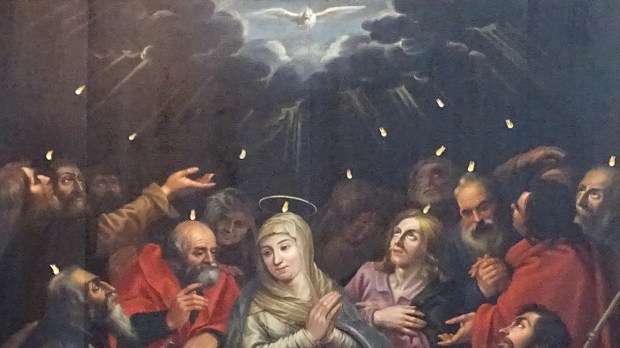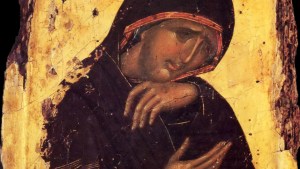While Catholics are familiar with calling Mary the “Mother of God,” a new title for Mary is gaining traction as Pope Francis instituted the annual feast of Mary, “Mother of the Church.”
St. Paul VI gave a lengthy explanation behind the title in his apostolic exhortation, Signum Magnum. His first point was to connect this title to Mary’s role in the life of Christ.
The first truth is this: Mary is the Mother of the Church not only because she is the Mother of Christ and His most intimate associate in “the new economy when the Son of God took a human nature from her, that He might in the mysteries of His flesh free man from sin,” but also because “she shines forth to the whole community of the elect as a model of the virtues.” Indeed, just as no human mother can limit her task to the generation of a new man but must extend it to the function of nourishing and educating her offspring, thus the blessed Virgin Mary, after participating in the redeeming sacrifice of the Son, and in such an intimate way as to deserve to be proclaimed by Him the Mother not only of His disciple John but – may we be allowed to affirm it – of mankind which he in some way represents, now continues to fulfill from heaven her maternal function as the cooperator in the birth and development of divine life in the individual souls of redeemed men.
He then explains how Mary is Mother of the Church, even though she is no longer physically present on earth.
But in what way does Mary cooperate in the growth of the members of the Mystical Body in the life of grace? First of all, by her unceasing prayers inspired by a most ardent charity. The Holy Virgin, in fact, though rejoicing in the union of the august Trinity, does not forget her Son’s advancing, as she herself did in the “pilgrimage of the faith”. Indeed, contemplating them in God and clearly seeing their necessities, in communion with Jesus Christ, “who continues forever and is therefore able at all times to intercede for them,” she makes herself their Advocate, Auxiliatrix, Adjutrix and Mediatrix.
Furthermore, Mary’s role in the Church has been vital to the spread of Christianity since the very beginning.
On Pentecost, the “birthday of the Church,” Mary was present with the apostles and likely guided them with a motherly care during those early days.
Mary was and still is the “Mother of the Church,” a kind and gentle mother who cares for her spiritual children throughout their entire lives.



